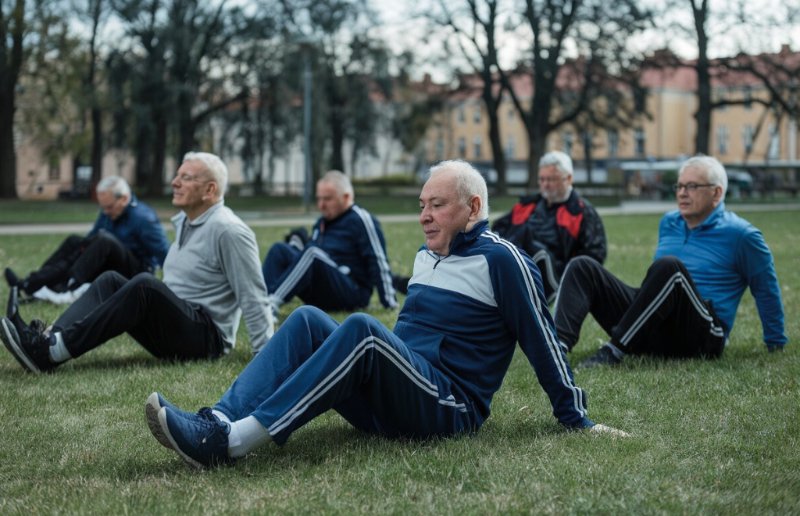Mental Health Fitness Introduction:
In the present world, it’s normal to feel overwhelmed and frightened. While many focus on physical health, the link between fitness and mental well-being is equally vital.
Regular exercise has been demonstrated to have a tremendous effect on our mental health. It has lowered stress, anxiety, and sadness. We’ll investigate how exercise can boost our mood, improve our cognitive performance, and enhance general quality of our life. What kind of influence can muscular training have on mental health?

Although it differs from person to person, muscle exercise can potentially lessen stress. As the adage goes, “mind, technique, and body” (mind, technique, and body) and the body are tightly related. In this essay, we will describe the benefits of muscle training. The benefits of strength training Experts suggest that strength training develops our basal metabolic rate: basal metabolism is the energy used for breathing, body temperature regulation, etc., so sustaining life.
Your muscles will be better able to create heat as you train and raise their mass. Rising your basal metabolism helps you burn fat more easily and makes it more difficult for you to acquire weight. Secondly, boost your immunological system.

Enhance your immunity: The immune system protects the body against viruses and bacteria. White blood cells, located in the blood, protect the body from viruses and germs. Because exercise boosts immune cells—including white blood cells and lymphocytes— boosts immunity. Training muscles boosts immunity and metabolism, thereby activating hematopoiesis in the bone marrow. As a result, there is also an increase in the production of cytokines, which are molecules that operate to remove foreign compounds.
Improved blood flow: As mentioned above, muscle training promotes blood flow throughout the body, improving circulation and warming the body. Stiff shoulders are caused by waste products building up due to poor circulation, so muscle training is expected to improve this. Furthermore, improved blood flow also has a positive effect on poor circulation.
Your mind will turn and switch faster: Exercise causes the release of BDNF (brain-derived neurotropic factor). BDNF is necessary for expanding brain cells, which regulate the growth of nerve cells, such as their survival and growth, and the enhancement of synaptic function. In the past, the conventional belief was that the number of brain cells does not change, but current research has demonstrated that old brain cells are replaced by new ones. Furthermore, BDNF is present in high concentrations in the hippocampus, which controls memory, learning, and cognition.

Hormones secreted during muscle training: Have you ever felt a raise in your mood or a reduction in physical and mental pain after exercising or practicing muscle training? This may be related to the release of hormones in the brain. When you conduct muscle training, brain hormones such as endorphins, dopamine, serotonin, and testosterone are secreted. Endorphins are considered to have an analgesic effect around 6.5 times stronger than morphine, while dopamine is also dubbed a joy chemical. It is secreted in large numbers not only when you are joyful but also when you feel great pain, and it is a brain hormone that soothes pain as a form of brain anesthesia. I have addressed serotonin in prior columns, so do have a look if you are interested.
Testosterone, a representative male hormone, is also secreted by muscle training. It has the effect of turning on the body’s switch, increasing fighting spirit, motivation, and lifting your mood.
It is said that the pain gradually eases as you continue muscle training due to the action of testosterone. In addition, sports medicine believes that muscle training can suppress the amount of Kynurenine in the body, and that increasing tryptophan, which is also known as a relaxing substance, reduces the risk of depression.
FAQs:
- How does exercise benefit mental health?
Exercise releases endorphins, which are natural mood elevators. It can also reduce stress hormones like cortisol. Regular physical activity can help improve sleep quality and boost self-esteem.
- Can exercise help with anxiety and depression?
Yes, exercise has been shown to be effective in managing symptoms of anxiety and depression. It can help reduce negative thoughts and improve overall mood.
- Is there a specific type of exercise that’s best for mental health?
Any form of physical activity can benefit mental health. However, activities that you enjoy and find engaging are more likely to be sustainable.
- How often should I exercise for mental health benefits?
Aim for at least 30 minutes of moderate-intensity exercise most days of the week. Even short bursts of activity can be beneficial.
- Can exercise help with stress management?
Absolutely. Exercise can help you relax and reduce stress levels. It can also provide a distraction from worries and negative thoughts.
- Is it okay to start exercising if I’m already feeling depressed or anxious?
It’s generally safe to start exercising, but it’s important to listen to your body and consult with a healthcare professional if you have any concerns.
- Can exercise help improve cognitive function?
Yes, regular exercise can help improve memory, concentration, and problem-solving skills.
- Is it important to set realistic fitness goals?
Yes, setting achievable goals can help you stay motivated and avoid feeling discouraged. Start with small, manageable goals and gradually increase the intensity or duration of your workouts.
- How can I stay motivated to exercise?
Find an exercise buddy, try new activities, listen to music or podcasts while working out, or reward yourself for reaching your fitness goals.
- Can exercise help with sleep problems?
Regular exercise can improve sleep quality, especially when it’s done at a moderate intensity and at a consistent time each day.







